Healthy drinks in China have been booming as consumers shift from sugary, high-fat options to natural, simple-ingredient beverages, driving strong segment growth. Data shows that in 2024, China’s overall beverage sales grew 7.8%, but healthier categories outpaced this. For instance, the ready-to-drink (RTD) teas jumped 16.6% year-on-year, and functional beverages rose 12.1%, even as traditional soda sales stagnated or fell. New product launches heavily emphasize health: most new beverages in the past two years center on “health” or fruit ingredients, with labels touting “0 sugar, 0 fat, 0 additives” as common selling points.
Download our China F&B White Paper
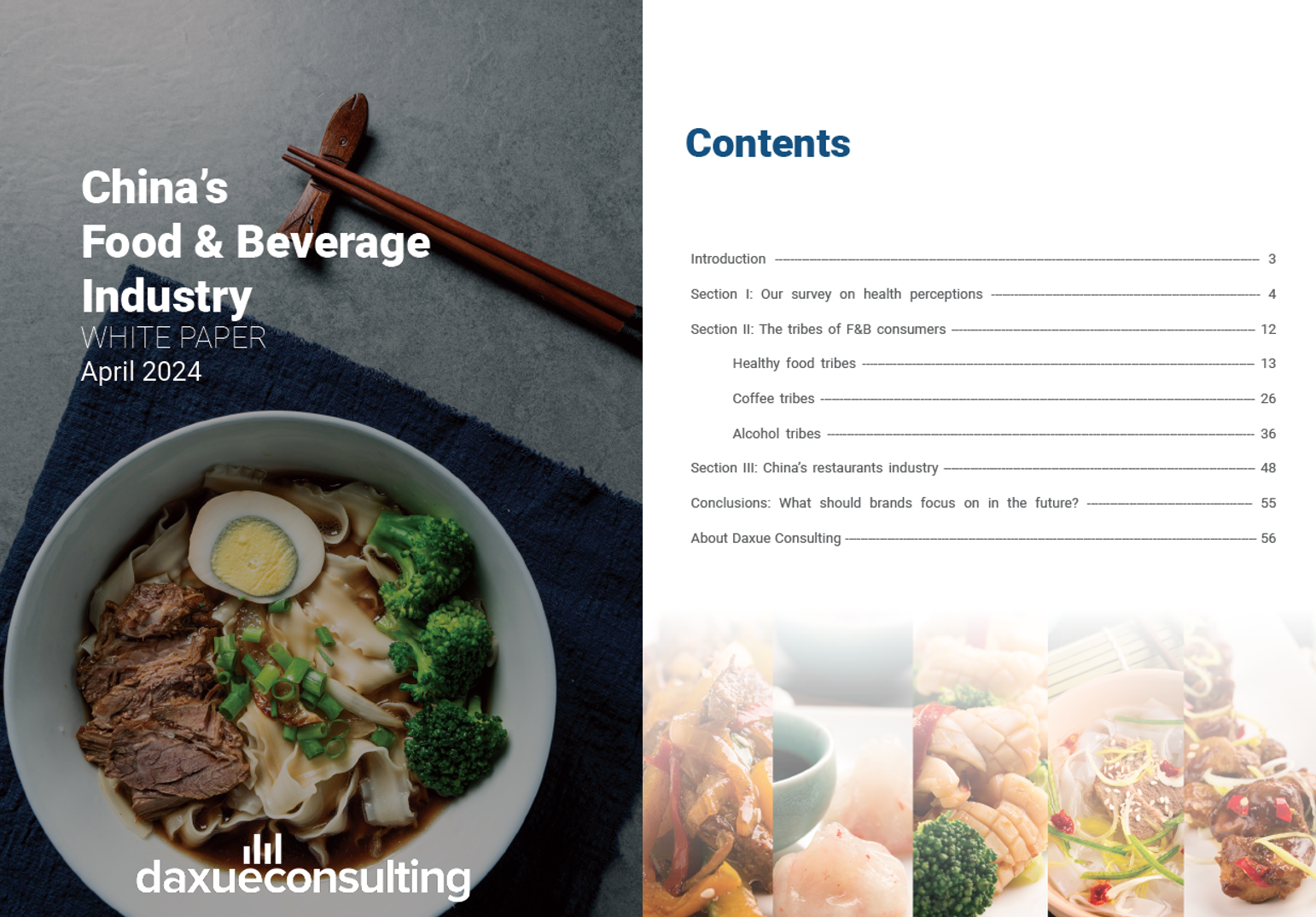
The rise of sugar-free beverages in China
One of the strongest trends of healthy drinks in China is the move toward sugar-free drinks. In 2024, unsweetened bottled teas saw sales increase by 60% year-on-year. This trend is so prominent that almost every major player, from traditional giants like Master Kong, Uni-President, Coca-Cola, and Wahaha to newer brands like Genki Forest, has launched sugar-free lines of tea or soda. The competition in the sugar-free tea category is fierce, with over 150 distinct unsweetened tea SKUs on the market by late 2023.
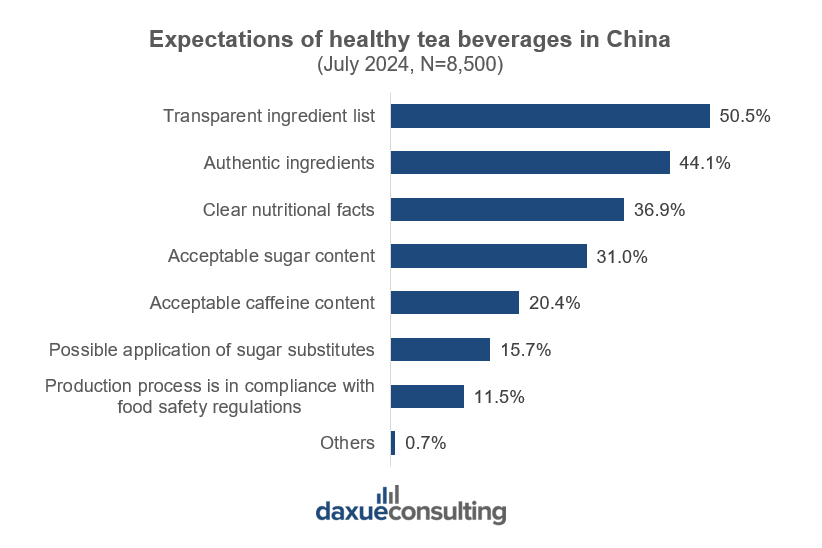
Furthermore, forecasts suggest that by 2028, China’s sugar-free tea market could reach RMB 53 billion, accounting for about 26% of all tea beverages. This growth is driven by rising health consciousness, strong consumer preference for ‘0 sugar’ products, and aggressive expansion from major beverage brands. For instance, Genki Forest is building massive new factories in Tianjin to scale up its healthy drink output.
Modern beverages meet Traditional Chinese Medicine ingredients
Since 2023, a striking trend of healthy drinks in China has been the resurgence of traditional Chinese ingredients in modern beverages. Brands are creating “中式养生水” (Chinese wellness drinks) that incorporate ingredients from Traditional Chinese Medicine (TCM) such as red dates, goji berries (wolfberry), chrysanthemum, hawthorn, red bean & coix seed, etc. Such formulations include benefits like improving digestion, “removing dampness,” or boosting immunity in line with TCM principles.
A notable example is Genki Forest’s new herbal drink line “Haozizai”, launched in 2023, which features bottled infusions like red bean barley water and goji & red date water with zero sugar. In under a year, Haozizai became a blockbuster: by late 2024, it had generated over RMB 1 billion (USD140 million) in sales and ranked #1 in China’s “herbal wellness water” category by volume. Convenience stores report that unsweetened teas and herbal drinks like these now occupy up to one-third of refrigerated shelf space, reflecting consumer demand.
By 2025, even traditional TCM companies and pharma brands had entered the space – for example, Beijing Tongrentang (a famous TCM pharmacy) released its own bottled birch sap and herbal drinks.
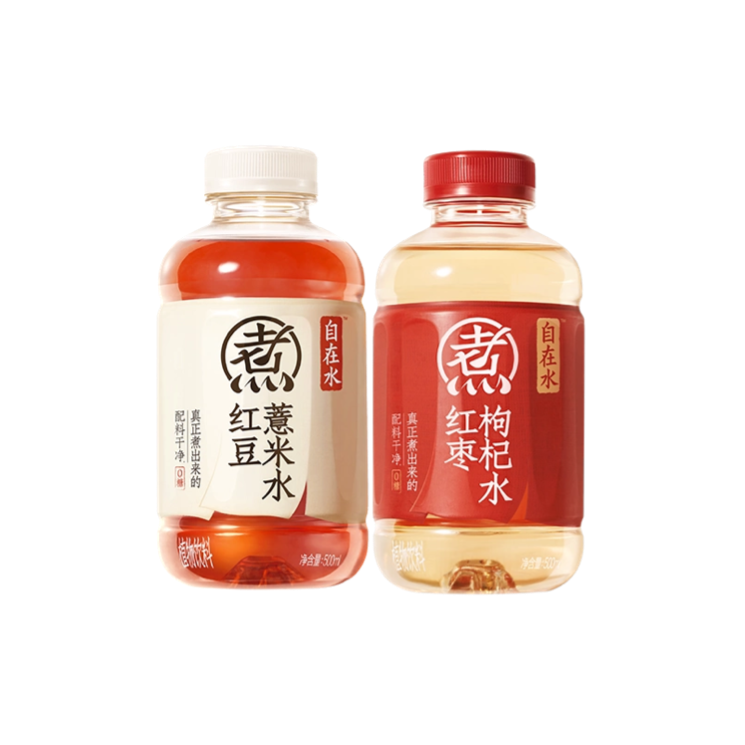
Prickly pear: from regional superfruit to national health drink
Local superfood fruits such as 刺梨 (cìlí, Rosa roxburghii), which is known as the “king of vitamin C” are being commercialized into popular health drinks. Once an obscure, tart regional specialty from Guizhou, prickly pear juice gained nationwide fame in 2023 after being featured on a popular livestream channel. Within seconds, 10,000 boxes of Guizhou pure prickly pear juice sold out on the stream, and one channel sold 4.28 million bottles of prickly pear juice in 2023 as consumers flocked to its immune-boosting reputation.
Shanwangguo’s fermented Prickly pear drinks, positioned as high-end wellness tonics at nearly ¥100 per bottle, have become an industry benchmark. By 2024, Shanwangguo was certified as the #1 seller of Prickly pear juice in China. It also aligns with the brand’s serving “10 million healthy families,” aligning with China’s Healthy China 2030 strategy.
The rise of Prickly pear has also spread to tea formats. A popular tea brand called Qu Cha Shan (去茶山), which originated from Guiyang, incorporated Prickly pear into its drinks. Its iconic range features unique fusions like 贵州刺梨茉莉花 (Guizhou Prickly pear Jasmine Tea) and 贵州刺梨云南普洱茶 (Guizhou Prickly pear Yunnan Pu’er Tea), and 贵州刺梨美式咖啡 (Guizhou Prickly pear flavored Americano). With 71 stores now open across China, Qu Cha Shan is helping bring Prickly pear-based beverages to a broader audience beyond its regional roots.
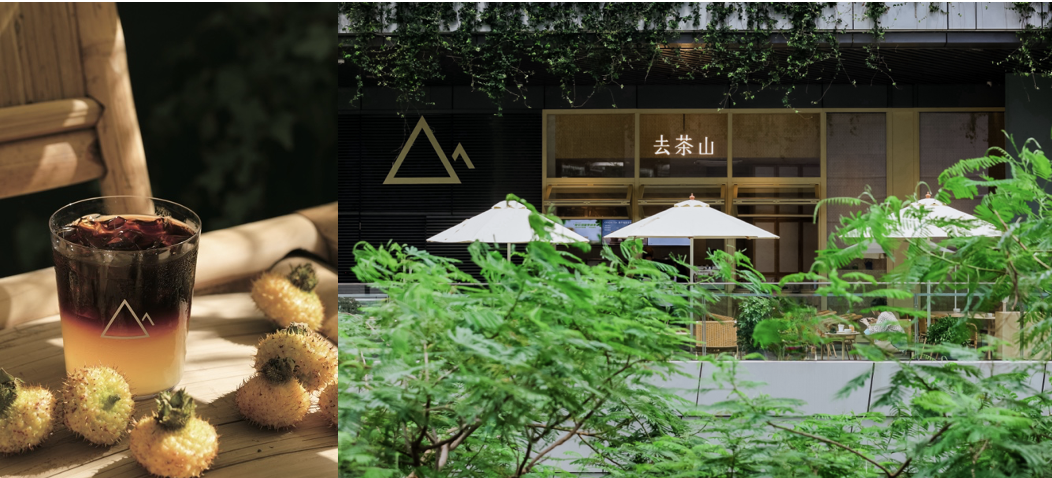
The expansion of electrolyte drinks in China
Likewise, isotonic and electrolyte drinks (for rehydration during sports) are booming, led by products like Danone’s Mizone and domestic entrants. Genki Forest, for example, launched an “Alien electrolyte water” (外星人电解质水) targeting sports and e-sports users; by 2023, Alien water’s sales reportedly surpassed RMB 3 billion, growing nearly 3 times year-on-year and capturing about 25% of China’s electrolyte drink market.
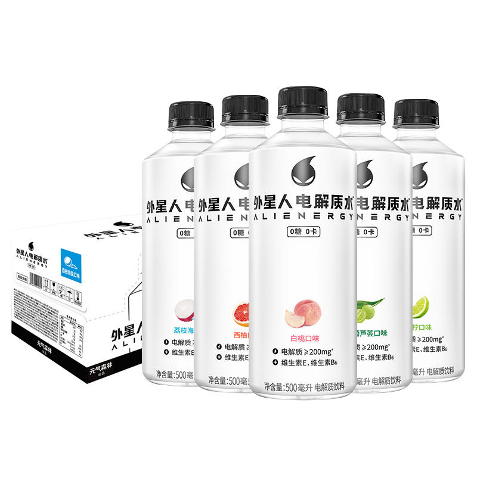
This underscores the huge demand for specialized functional beverages — from hydration-focused isotonic drinks to caffeinated energy boosters. Products are often tailored to sports, fitness, or intense mental work, from classic ones like Red Bull and local brand Eastroc (东鹏特饮) to newer zero-sugar options. Many young people consume these before workouts or even for long work/study hours. There is also a small but notable trend of “pre-workout” beverages that combine caffeine with ingredients like BCAAs, taurine, or even creatine, marketed to gym-goers.
Healthy drinks in China at a glance
- China’s beverage market grew 7.8% in 2024, but health-driven segments outperformed. Unsweetened teas surged 16.6%, and functional drinks rose 12.1% as consumers increasingly favored “0 sugar, 0 fat, 0 additives” options over traditional sodas.
- Sugar-free tea exploded in popularity, with over 150 SKUs by late 2023. Brands like Genki Forest, Coca-Cola, and Master Kong raced to expand offerings. China’s sugar-free tea market is projected to hit RMB 53 billion by 2028.
- Traditional Chinese ingredients are increasing in popularity. Genki’s herbal water line “Haozizai” hit RMB 1 billion in under a year, while Beijing Tongrentang and others launched bottled birch sap and red date drinks to meet rising demand for TCM-based wellness beverages.
- Once less-known, prickly pear became a mainstream health ingredient after livestream success. High-end brand Shanwangguo led the category, while tea brand Qu Cha Shan introduced Prickly pear-infused jasmine and Pu’er teas, expanding to 71 stores across China.
- Functional drinks like electrolyte waters are booming, driven by fitness trends. Genki’s “Alien electrolyte water” topped RMB 3 billion in 2023. Pre-workout and caffeinated energy drinks also gained popularity among youth for gym and study use.




